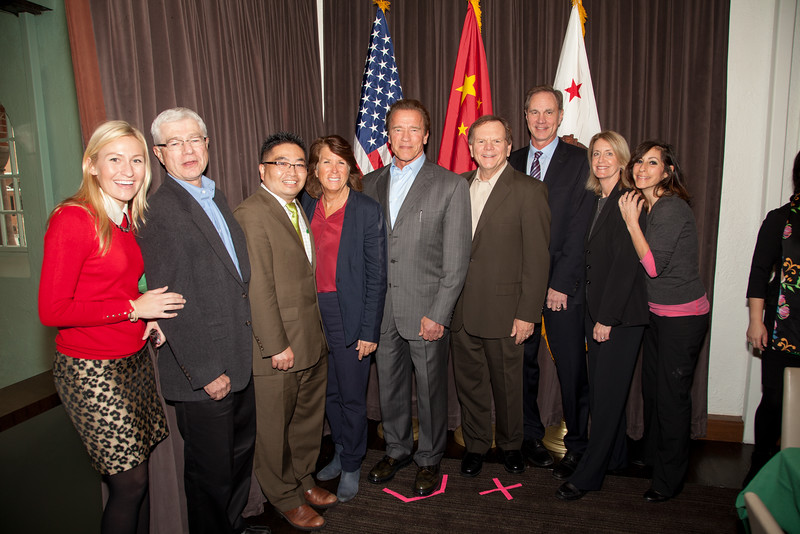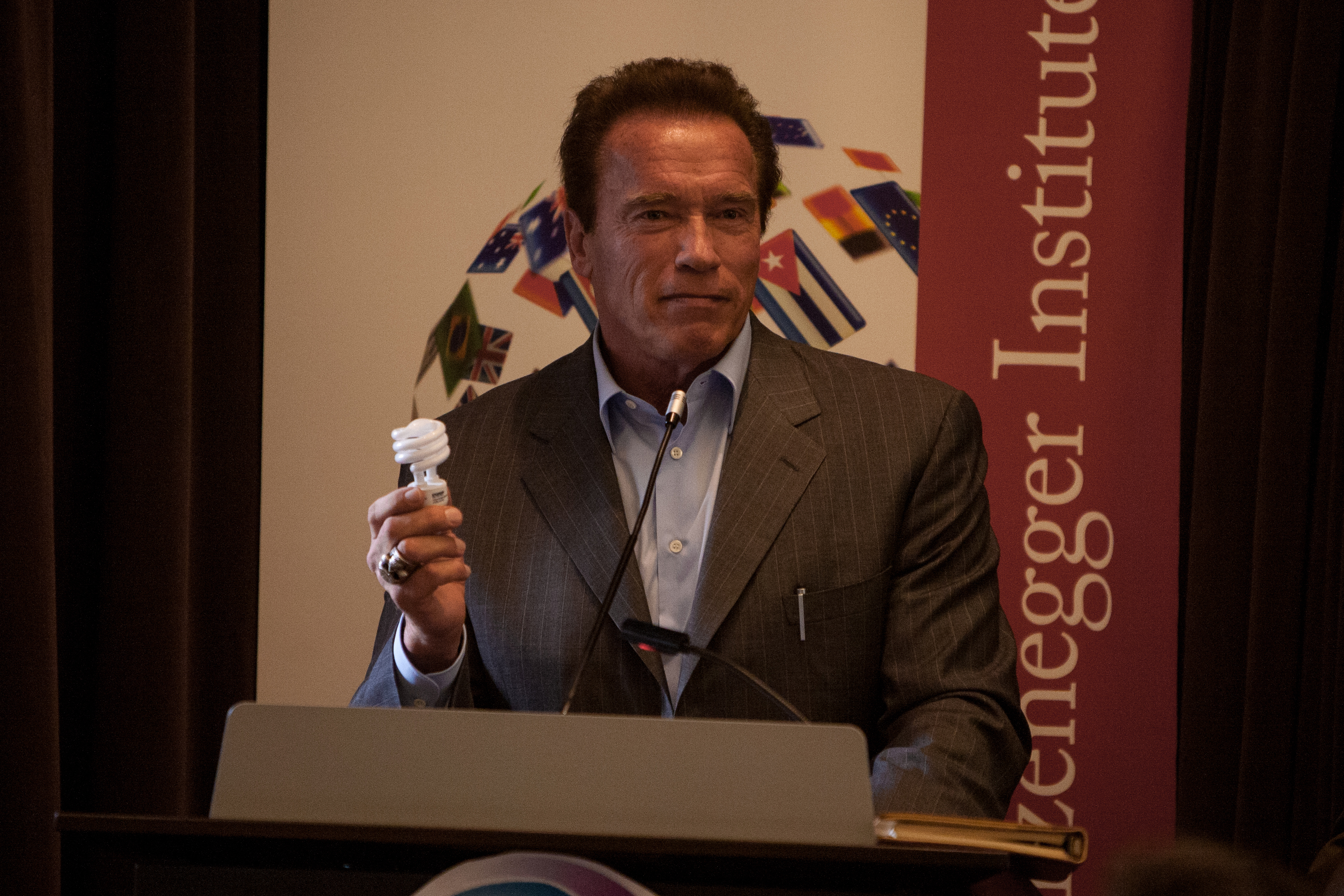On Wednesday, December 17th the USC Schwarzenegger Institute partnered with the R20 Regions of Climate Action, to host dozens of China’s CEO’s and business leaders focused on growing their business while addressing climate change and environmental protection.
The forum brought together leaders from a cross section of industry sectors including real estate and development; energy; automotive; sports and fitness; hotel and hospitality; agriculture; garment and apparel; agriculture; beauty and health; media, as well as government leaders, and representatives from the Global Leadership Alliance. The half-day workshop explored both opportunities and challenges faced by China’s green innovators, and sought out lessons from California’s leadership and experience. The forum was an important follow up to the Climate Summit hosted by the Institute, R20 and the California Air Resources Board in Sacramento in September led by both Governors Arnold Schwarzenegger and Jerry Brown.
Addressing the important joint announcement last month by U.S. President Obama and China President Xi Jinping to reduce greenhouse gas emissions 26-28% below 2005 levels by 2025, the point was made that this target is achievable with the actions taking place at the state, city, province and regional levels. The business leaders attending also expressed optimism at the interest of the China business community in joining this important effort.
Representatives from the real estate sector expressed the importance of getting sustainable building policies in place, similar to California because of the rapid development currently underway. They also explained the importance of retrofitting historical buildings with respect for maintaining the historical elements their culture values, and in fact is important to the tourist industry. The energy sector leaders discussed plans in three areas: Individual consumption; Companies and private sector; and government. The issue of inefficient pricing of energy by both the U.S and China was raised, as was local protectionism.
Representatives from CCTV and Tencent, the largest social media internet site in China, spoke of their commitment to participating in large public awareness campaigns as well as exploring ways to reduce their own carbon footprint, like energy savings in their server farms, along the lines of what California’s Cisco has done. The forum agreed that communicating the importance of this to the general public should be a top priority, including connecting it to the health impacts, and The Global Leadership Alliance, which is comprised of Corporate Chairmen discussed launching a communications campaign targeting industry sectors. R20 leaders discussed the “tool kits” they have available to their members, including the “cool roof tool kit” and “street lighting” tool kit, and committed to working with the Global Alliance to develop others useful to industry.
The workshop concluded with Institute Academic Director Dr. Dan Mazmanian presenting, “California’s Policy Logic: The Case of Climate Change” and laid out the logic behind the many California policies addressing climate change and what many of those key policies are. Discussing the importance of using regulations to create markets that attract capital, setting clear policy goals and timelines, and measuring, monitoring and revising goals upwards, were key highlights. Mazmanian explained the importance of California policies being based on science and health and health impacts, and how change has been a continuous process and not a one-time event. The two most important policies discussed were California’s landmark Cap and Trade bill, AB32, the Global Climate Solutions Act, and it’s Urban Policy Companion SB 375, The Sustainable Communities Climate Protection Act.
Following the morning workshop was a lunch hosted by Governor Arnold Schwarzenegger at the USC University Club, where he heard the highlights of the morning workshop, and encouraged the business leaders to continue their important climate work. Picking up on the energy efficiency discussion, he said that if every person in China replaced one energy inefficient lightbulb with one LED lightbulb it would be the equivalent of taking one million cars off the road.
Dean Jack Knott of the USC Price Public Policy School commented on the importance of a China/U.S/California collaboration especially in addressing climate change. USC is proud to educate more international students than any other U.S university.
In closing Governor Schwarzenegger reminded everyone that we cannot look at climate change as a “one legged stool”, but must always understand its connection to health; national security; and job creation. The collaboration between the USC Schwarzenegger Institute, R20 and China is ongoing, and will be organizing the next forum in China in the spring of 2015.



